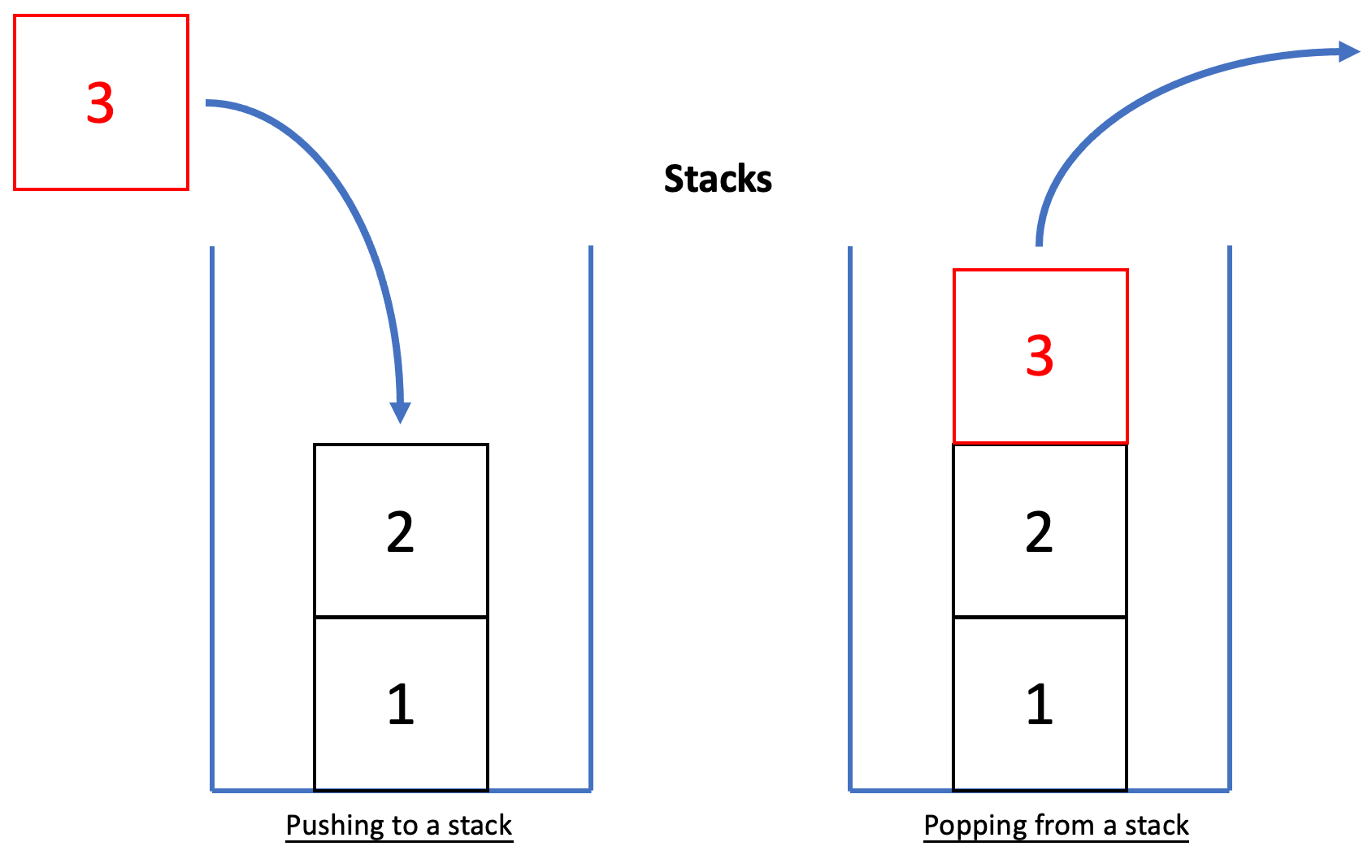Stacks and Queues
This article covers stacks and queues and the functions associated with each abstract data type.
Stacks
Stacks are a special kind of list ADT where items can only be added to and removed from the “top”. Stacks support two main functions: pushing and popping. With stacks, you add and remove items by using push and pop functions.
Stack Functions
Pushing to a stack means adding an item to the top of a stack. Popping from a stack means removing an item from the top and returning it back to the calling function.

These two functions make stacks a last-in-first-out (LIFO) data structure. This means the last item pushed onto a stack will be the first item popped from the stack.
Queues
Queues are a special List ADT where items are added to the back and removed from the front. Like stacks, queues have two main functions to add and delete items.
Queue Functions
Enqueuing adds an item to the back of a queue, while dequeuing removes an item from the front of the queue and returns it to the calling function.

These functions make queues a first-in-first-out (FIFO) data structure. The first item put into the queue will be the first item removed from the queue.
More Resources
Below are some more resources to learn about stacks and queues: